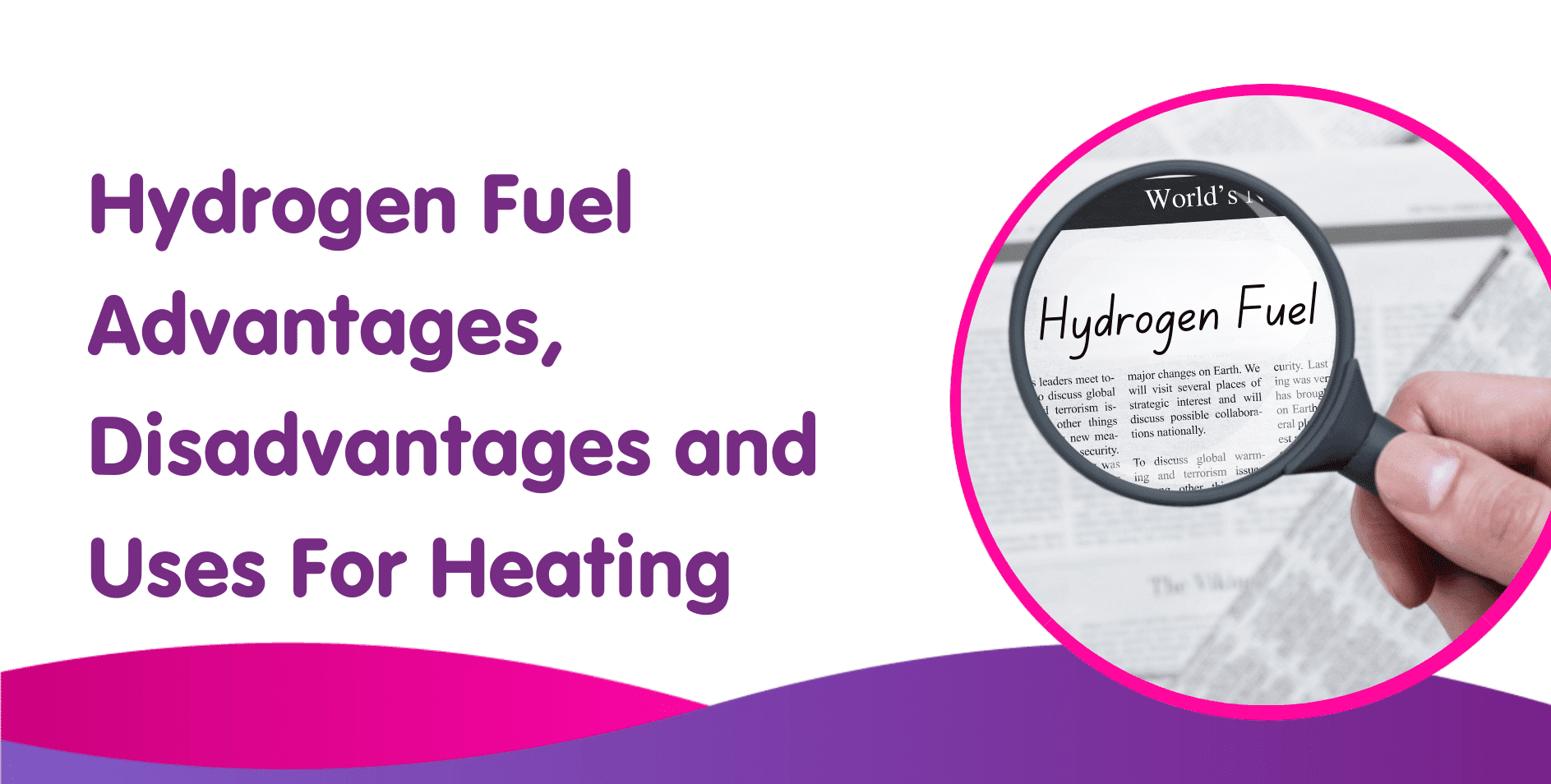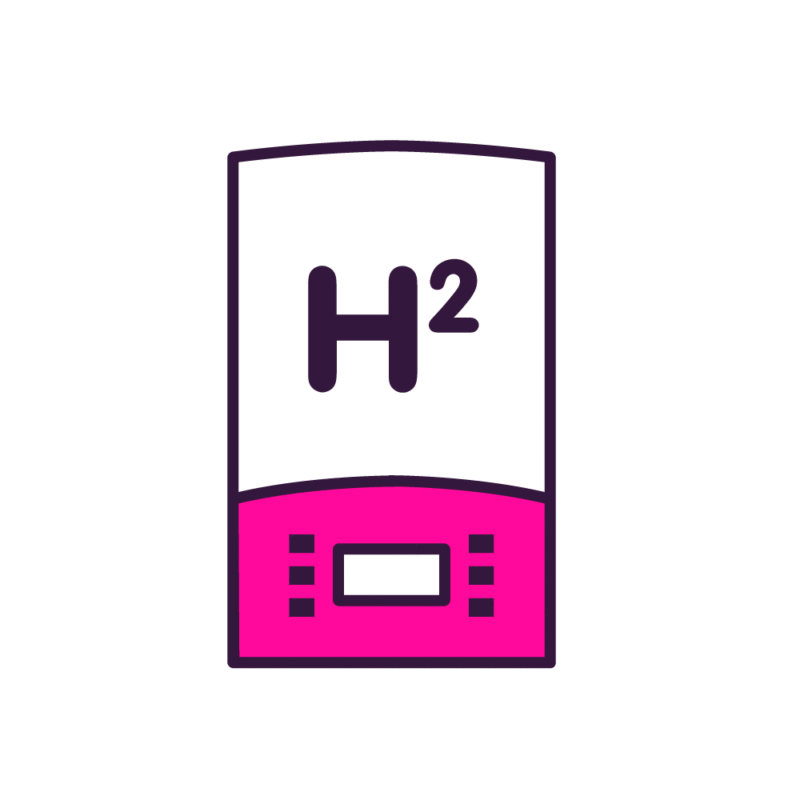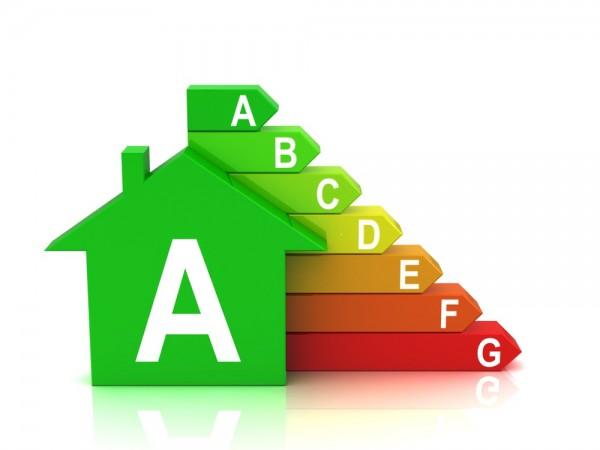Hydrogen Fuel Advantages, Disadvantages and Uses For Heating

Jump to:
Advantages and disadvantages of hydrogen fuel for home heating

Are you wondering what the advantages and disadvantages of hydrogen fuel are for home heating? If so, you’re reading the right article.
Get a fixed price in under 20 seconds here
And although many of us rely on them, the sad fact is that gas boilers are a big contributor to global warming.
When we burn natural gas currently in new boilers to heat our hot water and homes in general, harmful carbon is released into the atmosphere, adding to climate change. Fortunately, there may be a solution in the form of hydrogen fuel.
This can be added to the gas network that’s currently used and sent to homes like natural gas, except it doesn’t produce carbon when it’s burned. This makes it a perfectly possible natural gas alternative and why hydrogen ready boilers that can run on up to 20% hydrogen are now available.
Get an online fixed price in 20 seconds:
Is hydrogen fuel the best thing for heating homes?
But, as with most things, hydrogen fuel does have its advantages and disadvantages. Here, we’ll explain the pros and cons of this fuel and how it can be used for central heating in the home. But first, let’s take a look at what hydrogen fuel is and how it’s produced.
What is hydrogen fuel?

Hydrogen, oxygen, and nitrogen make up around 75% of the universe, forming the foundations of most of our planet’s life. Hydrogen can be found in water and plant matter. The sun is also made up of mostly hydrogen, but it’s so light that it evaporates from the earth’s surface because of the heat from the sun’s rays.
Hydrogen is the most simple element of our planet as it’s only made up of one electron and one proton. This means most of the time it can’t exist on its own and it’ll be combined with additional elements. For example, water is two parts hydrogen and one part oxygen.
But, hydrogen is a clean energy source that can be used to power homes if it can be extracted from biomass, natural gas, or water.
How is hydrogen fuel produced?
Hydrogen can be produced in one of two ways – electrolysis, which is green hydrogen, and steam-methane reforming, which is blue or grey hydrogen. Green hydrogen is likely to be the main form of fuel in the UK as it is as the name suggests, the greenest form in which it is produced.
if you are interested in energy efficiency and low CO2, read our green boilers guide here
What is green hydrogen?
there are two main types of hydrogen – Green hydrogen and blue hydrogen.
The hydrogen produced from renewable energy or low-carbon power is called green hydrogen. It has significantly lower carbon emissions that grey hydrogen which is made by steam reforming natural gas. This makes up the majority of the hydrogen market. The electrolysis of water produces less than 0.1% total hydrogen production. This hydrogen can be used to reduce carbon emissions in hard-to-electrify sectors like steel and cement production and help limit climate change.
Low use of green hydrogen is due to the high production costs. The hydrogen market will continue to grow with some forecasts that the cost of hydrogen production will drop from $6/kg in 2015 down to $2/kg by 2025. Major European companies have announced plans to convert their truck fleets to hydrogen power in 2020.
You can mix green hydrogen into existing natural gas pipelines and use it to make green ammonia. This is the main component of fertilizer production. Hydrogen industry bodies suggest that green ammonia could be priced at the same price as conventional ammonia (gray ammonia), by 2030.
Electrolysis
Electrolysis involves a high electrical current being passed through water to separate hydrogen gas and oxygen atoms. Although this sounds simple, it can be an expensive process because of how much electricity that’s needed.
Additionally, to create electricity, fossil fuels have to be burned which can produce carbon emissions. However, if electrolysis is performed with solar panels, hydropower, or wind farms, then carbon emissions can be avoided.
Steam-methane reforming
This is a process that involves separating hydrogen and carbon in methane. It’s a commonly used method at the moment because hydrogen fuel cells can be extracted in large amounts, but it does emit carbon, both dioxide and monoxide.
Both of these are greenhouse gas emissions that are harmful to our planet and will add to global warming. This type of hydrogen is called blue hydrogen
Get an online fixed price in 20 seconds:
The pros and cons of using hydrogen as a fuel
Pros:
Energy efficiency

Hydrogen energy is very dense and is capable of providing lots of power, making it energy efficient. It’s three times more powerful than fossil fuels, so less hydrogen is needed to carry out the same tasks.
This is why hydrogen is the favoured fuel source in space exploration to power aeroplanes, cars, boats, spaceships, and fuel cells. Hydrogen-ready boilers that can run on up to 20% hydrogen are already in production. All the best combi boilers are hydrogen blend ready asnd this will drastically cut emissions in the future.
Non-toxic and environmentally friendly
Hydrogen is non-toxic which is quite rare among fuel sources. This makes it environmentally friendly and it doesn’t pose any risks to human health.
This makes it a good alternative to other power sources such as gas or nuclear power, which are both hazardous and challenging to use safely. The non-toxic nature of hydrogen also means it can be used in situations where other energy sources might not be allowed.
Reduced dependency on fossil fuels
Using hydrogen energy means there’ll be a lower dependence on fossil fuels. This in turn could reduce the dependence on world market prices of fossil fuels such as oil.
Because oil is a fossil fuel that will inevitably deplete, world market prices for oil will increase over time. Because of this, the use of alternative energy sources should be expanded, to avoid being affected by these rising prices.
Variety of uses
As technology becomes more advanced, hydrogen fuel cells will have the ability to supply energy for mobile and stationary applications.

Hydrogen-powered vehicles are a good example, but this fuel source can also be used to create smaller applications such as domestic items and large scale heating systems.
No visual and noise pollution
Hydrogen fuel cells don’t produce noise pollution as other energy sources do, such as wind power. This means that, like electric cars, hydrogen-powered cars are a lot quieter than vehicles that are powered by conventional engines.
Another advantage is that hydrogen doesn’t create unsightly facilities either. Whereas, wind energy and biofuel plants can be big visual pollutants, spoiling the beauty of the landscape.
Renewable energy source and abundant in supply
Hydrogen is a useful energy source for lots of reasons, but one of the biggest advantages is that’s in plentiful supply. Although it might need a lot of resources to use it, very few other energy sources are as infinite as hydrogen.
Essentially this means there’s very little to no possibility of hydrogen running out, unlike fossil fuels such as coal and oil.
Reduces carbon footprints
With almost zero emissions, hydrogen fuel cell technology doesn’t release greenhouse gases, meaning there’ll be no carbon footprint while it’s in use.
Switching to hydrogen would create new job opportunities
Expanding the use of hydrogen energy will also create many new job opportunities. It’s estimated that using hydrogen for heating homes could create up to 9,000 jobs by the year 2030. 20% Hydrogen ready boiler installation is easy too, so this wouldn’t cause any issues in the build up.
Get an online fixed price in 20 seconds:
Cons:
Highly flammable and volatile
Hydrogen gas should never be underestimated. Although natural gases are slightly more dangerous, hydrogen is highly volatile and flammable, so there are potential dangers.

Unlike gas, hydrogen doesn’t smell of anything which makes it hard to detect a leak. For this reason, sensors should be installed where hydrogen gas is used.
Expensive to produce
Both electrolysis and steam methane reforming are expensive processes. This stops many countries from committing to expanding into widespread hydrogen use.
Research is still ongoing to find an affordable, sustainable, and environmentally-friendly way of producing hydrogen fuel cells.
Lack of infrastructure
Another big drawback is that there is a lack of infrastructure that can support hydrogen fuel cell technology. For example, you can find fuel stations everywhere, so using cars that are powered by fossil fuels is easy and convenient.
But, if cars powered by hydrogen fuel cells are used, it may be a while before a fuel station that supplies hydrogen power can be found. Because of this lack of infrastructure, hydrogen power still has a way to go before it’s able to compete with fossil fuels.
Regulatory concerns
There are barriers around the regulatory issues regarding the framework of commercial deployment models. Without this clear framework that allows commercial projects to appreciate their revenue basis and cost, they can struggle to reach an FID – financial investment decision.
Difficult to store and transport
Because hydrogen gas is a lot lighter than gasoline, it’s much more difficult to transport and store. To be able to store it, hydrogen has to be compressed into liquid form and stored at low temperatures.
The high-pressure amounts that are needed to effectively store hydrogen mean it’s difficult to transport large amounts of it.

Hydrogen can be dangerous if not handled correctly
If hydrogen gas production isn’t carried out safely, there’s a risk of explosions that could cause untold damage and harm to workers.
For this reason, serious safety measures are essential to prevent accidents and potential fatalities relating to hydrogen energy.
Making hydrogen can result in the production of carbon
There are a few ways of producing hydrogen power, but unfortunately, some of them create carbon. In the UK, steam reforming is the process that’s most likely to be used, which does emit carbon into the atmosphere.
Fortunately, it’s possible to contain this carbon using CCUS – carbon capture utilisation and storage. Once it’s been captured it can be utilised by other sectors, such as fizzy drinks manufacturers. This method is called blue hydrogen.
Producing hydrogen requires the use of Fossil fuels
Although hydrogen energy is one of many renewable energy sources, the process needed to separate it from oxygen needs additional non-renewable energy sources, such as coal and oil.
Get an online fixed price in 20 seconds:
How can hydrogen fuel be used in homes?

At the moment, most UK homes use fossil fuels to provide power and heat, mainly in the form of gas and oil boilers. To reduce the carbon emissions produced by these fuels, a change in how we power our homes needs to be made and using hydrogen is a promising contender.
Moving from gas to hydrogen means UK homes could continue to be powered by boilers. This means the huge task of replacing them with renewable heating solutions wouldn’t be needed.
One way of doing this is to gradually increase the hydrogen power levels that are supplied to homes, beginning with 20% hydrogen combined with gas. After a while, this would be expanded to 100% hydrogen to generate electricity.
What are hydrogen ready boilers and how do they work?

Hydrogen-ready boilers are gas-powered boilers that can burn either 100% hydrogen or gas. These boilers are essential for the conversion of currently used gas to hydrogen. Hydrogen ready boilers aren’t available yet, but hydrogen blend ready boilers are and most new boiler installations in the UK will now be this type of boiler.
A hydrogen-ready boiler will be similar to its gas predecessor – it will be constructed and works in the same way as a condensing boiler. Although some components are distinctive, most of them are the same as the parts in gas boilers.
Converting hydrogen-ready boilers from gas to hydrogen will likely take an hour and the process involves adjusting a few parts such as the burner. The boiler installation process is exactly the same too, so the cost of a new boiler doesn’t change too.
How can hydrogen be used to power boilers?

A hydrogen boiler is exactly as it says – it’s a boiler that burns hydrogen instead of gas, or methane. These boilers work very similarly to gas boilers, by burning gas through combustion.
This, in turn, produces hot flue gases, which can heat water. This water can then be stored to be used later by pumping it through the radiators to heat your home.
Because hydrogen is thinner than methane, some components of the boiler may be different, including the burner and the flame detector. However, they work in pretty much the same way as your present boiler.
Hydrogen boilers should not be mistaken for those that are powered by hydrogen fuel cells or with hydrogen-ready models. Both of these boilers have different systems to hydrogen boilers.
Get an online fixed price in 20 seconds:
The future of hydrogen fuel
There is a strong possibility that sustainable hydrogen energy will play a big part in future home heating solutions. But, although making the switch from gas to hydrogen power may seem simple, it’s quite the opposite.

The process to produce hydrogen fuel is expensive and unfortunately, it may emit carbon. However, on a positive note, hydrogen fuel cells could be a clean and fully renewable energy source for mobile and stationary applications.
To achieve this, fuel cell manufacturing and decarbonised hydrogen production will need to be scaled up, and the right regulatory framework will need to be developed. Additional technological advances are needed to lower the costs of storage, extraction, and transportation.
Although hydrogen power could be the best solution for future heating and electricity, substantial investment and political will are needed to achieve this goal. As fossil fuel sources deplete, hydrogen could be a crucial solution for the planet’s energy needs.
FAQs
Is hydrogen a good power source?

Like all power sources, hydrogen has many advantages and drawbacks. There are still plenty of debates about the pros and cons of hydrogen fuel cells. But, despite the limitations, hydrogen power is still a clean and environmentally-friendly alternative to fossil fuel sources.
Hydrogen fuel cell technology can also be used to provide high-density and flexible power for a range of power plants and methods of transportation.
Do hydrogen power plants exist?
Yes, although since hydrogen isn’t as widely used as other energy sources, there aren’t many hydrogen power plants in the world.
In 2021, the first US-based hydrogen power plant was built in Ohio. Considered one-of-a-kind, the power plant has been designed to run on a mix of carbon-free hydrogen and gas.
In July 2020, the Daesan Industrial Complex hydrogen power plant was built in South Korea. With 114 fuel cells, the plant is capable of generating up to 400,000 MWh of electricity, making it the largest industrial hydrogen fuel cell plant in the world.
What is blue hydrogen?
Blue hydrogen is created from gas through the steam reforming process. This involves gas being mixed with a catalyst and extremely hot steam. This combination creates a chemical reaction, creating carbon and hydrogen.
Water is then added to this mixture, converting the carbon monoxide into carbon dioxide and additional hydrogen. If the carbon dioxide is then contained and kept underground, the process is classed as carbon neutral, and the hydrogen produced is called “blue hydrogen”.
Who is the largest producer of hydrogen?
China is currently the leader in the global hydrogen market, boasting an output of 20 million tons. This accounts for one-third of the global production of hydrogen power. By 2025, the Chinese gas and oil enterprise, Sinopec, has a goal of creating 500,000 tonnes of hydrogen.
Is hydrogen the solution to our domestic heating problems? Conclusion
Hydrogen power is a very promising source of green energy and it may be the best way to ensure our planet has a plentiful supply of energy in the future. But, hydrogen fuel cell technology isn’t mature enough yet.
Lots more research needs to be done, and the infrastructure that this kind of technology needs has to undergo huge improvements to make it a good alternative to other sources of energy.
Get an online fixed price in 20 seconds:


